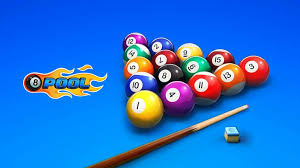
In billiards, pool balls are used. Although they can be made from many different materials, most pool balls are made from phenolic resin. Phenolic resin is a mixture of formaldehyde and phenol. These two compounds are well known for their durability as well as scratch resistance. The mixture is also resistant to high temperatures. The resin will start to yellow when exposed to the sunlight.
The original pool balls were made from wood. These pool balls were strong but would crack as they grew older. Leo Baekeland, a 19th-century chemist, created a new plastic material that wasn't flammable. This material was known as bakelite, and soon replaced wood in making pool balls.
The creation of pool balls was an expensive process. It took a while to create the balls. To see the contents of the balls, you could cut them in half. Ultimately, the balls had to be molded under high pressures.

After the initial version of bakelite was invented, other inventors began to experiment with chemical compounds to make pool balls. These inventions were pioneering moments for the synthetic plastics industry.
Although phenolic resin can be used to make pool balls, it is more expensive than its polyester counterpart. The polyester alternative may be the best option for you if you don’t have the budget to spend on pool balls. The polyester option won't last as long as the phenolic resin.
It takes approximately 23 days to make a phenolic ball. Each step is carefully examined to ensure that there are no impurities. Additionally, phenolic rubber balls can be stored at lower temperatures that polyester balls. They are therefore more durable and last longer.
Aramith is one the leading manufacturers of phenolic resin pool ball. Their phenolic pool balls are extremely durable and retain their shine up to 40 year. They are also more affordable than polyester balls. If you are looking for a higher-quality set of balls, the Aramith Premier includes superior resin technology.

Iszy is another poolball manufacturer, using a mix of phenolic and polymer resins. These pool balls are less expensive than phenolic, but they don't last as long. Polyester balls are also more prone to fading and burn spots on the table. They are still an excellent option for beginners.
Predator Arcos (another manufacturer) uses a proprietary compound to create a variety phenolic rubber balls. These balls are also more dense because they have been through-hardened. For those who want to spend less, they can choose the Iszy marble swirl set.
Many companies attempt to reproduce the ivory billiard balls experience. The ivory material is no more available. Modern pool balls are made from a combination of formaldehyde and phenolic resin. Today, approximately 85% are phenolic.